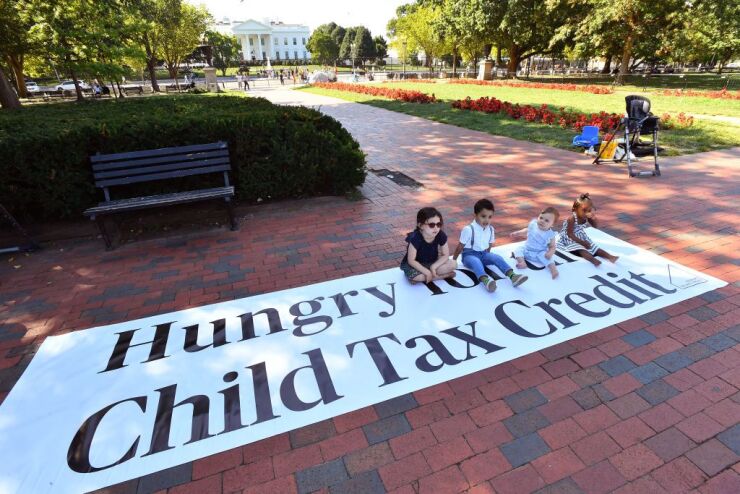The Internal Revenue Service had to scramble to reconcile the monthly advance payments of the Child Tax Credit it distributed in 2021 with the amount of credits later reported by recipients.
Many of them never filed a tax return, and there was an estimated $1 billion in erroneous advance payments sent, according to a new report.
The
The service created an automated process to recalculate the credit, including the amount of advance payments posted to a taxpayers' tax account. This process identified 3.8 million tax returns that contained a discrepancy between the IRS-calculated credit amount and the amount claimed by the taxpayer that required resolution.

In all, the IRS ended up issuing 216.9 million advance payments totaling $93.5 billion. The agency basically estimated the advance payments based on prior-year tax return information and the information reported through the nonfiler tools for taxpayers who usually don't file returns.
TIGTA's review of the reconciliation process of tax returns processed through May 5, 2022, identified 6,833 taxpayers who potentially received $10.5 million in excess Child Tax Credits because the tax examiners incorrectly resolved error conditions that allowed more credits than what the taxpayer was eligible to claim on their tax return. There were also 105 taxpayers who didn't receive all of their eligible credits, totaling an estimated $139,000 in credits not received.
In an earlier report, TIGTA reported that the IRS erroneously issued 3.3 million advance payments to 1.5 million taxpayers who weren't eligible to receive an advance payment and found that, as of Oct. 12, 2022, approximately 4.1 million taxpayers who were issued about $9 billion in advance payments had not yet filed a tax return. To handle the tax credits, the IRS created an automated process to recalculate the CTC, including the amount of advance payments posted to a taxpayers' tax account. That process identified 3.8 million tax returns that contained a discrepancy between the IRS-calculated credit amount and the amount claimed by the taxpayer that required resolution.
In response to TIGTA's concerns, the IRS developed a process to identify undeliverable advance payments that happened after taxpayers filed their 2021 tax return. As of Oct. 12, 2022, the IRS reissued payments to 7,877 taxpayers totaling $5.4 million.
TIGTA made seven recommendations to the IRS in its latest report, including identifying and reviewing the instances where taxpayers received more or less CTC than they were eligible to receive, sending letters to taxpayers with advance CTC payments who have yet to file a tax return for 2021, and creating a process to recover potentially erroneous advance payments.
The IRS agreed with four of TIGTA's recommendations and partially agreed with another. It didn't agree to identify additional taxpayers with excess Child Tax Credits or to develop a process to recover erroneous advance payments on nonfilers. However, TIGTA said it continues to believe that taxpayers received excess credits after the IRS implemented a programing change and that processes are still needed to recover erroneous advance payments totaling $1 billion.




